

In the era of the digital economy, data, as a new production factor and strategic resource, has become a new driver for high-quality development. On November 12, the WYSS 2022 - The Fourth Digital Economy Standard Innovation Forum was held at Wenzhou University, which focused on the data factor and the key areas of digital economy standardization. The forum was hosted by Zhejiang Association for Science and Technology, Zhejiang Provincial Administration for Market Regulation, Zhejiang Lab and Wenzhou Municipal People's Government. Themed "Data Factor Standards for New Breakthroughs in a New Journey", the forum brought together more than ten domestic and foreign leading academician experts to jointly discuss the governance of data factor standards.
The member list of the National Technology Standard Innovation Base (Intelligent Computing) was released at the forum, including ZJ Lab, China Electronics Standardization Institute, Institute of Computing Technology of Chinese Academy of Sciences, China National Institute of Standardization, Department of Computer Science and Technology of Tsinghua University, College of Computer Science and Technology of Zhejiang University, CAICT, Instrumentation Technology and Economy Institute of China, and other domestic top institutes and enterprises. The First Plenary (Enlarged) Meeting of the Base Council was also convened in Wenzhou on the same day. At the meeting, work charter and the measures for the administration of the Expert Committee were deliberated and adopted, the vice president unit of the Innovation Base Council was elected, and the intelligent computing technology and the development of national standard systems were discussed. "I hope that all the council members and the Base members could work together to explore the mechanisms of joint construction, achievement sharing and resource agglomeration of the Base, constantly deepen the Base development, build the Base into a benchmark of national technology standard innovation bases and push for a 'Chinese definition' of intelligent computing," said YUAN Jixin, Vice President of ZJ Lab and President of the Base.
At the forum, WU Hequan, Academician of the Chinese Academy of Engineering, WANG Huaimin, Academician of the Chinese Academy of Sciences, Chief Scientist of ZJ Lab in the wide-area collaborative computing, WU Xindong, a Foreign Member of the Russian Academy of Engineering, Senior Research Expert of the Research Institute of Artificial Intelligence of ZJ Lab, and TAO Dacheng, a Member of the Australian Academy of Science and Foreign Member of Academia Europaea made keynote presentations on standardization and data development.
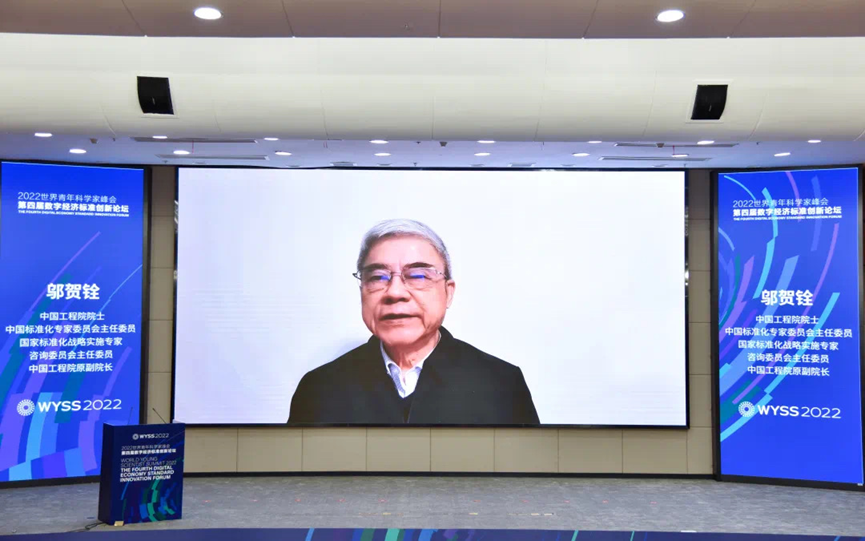
WU Hequan said that standards are an important part of the innovation ecology. In the era of the digital economy, standardization is also facing new issues. In data management, data is a production factor. At present, there is an urgent need for data asset standards to measure the value of data; there is also a need for standards on data ownership, right to use and right to be forgotten to protect and use the personal information of consumers; the management of data, especially the management of cross-border data flows, requires data classification standards. WU Hequan stressed that in today's world, standards, as an important part of international rules, have increasingly become the focus of the game among countries. With the acceleration of the new round of scientific and technological revolution and industrial transformation, standards will have a greater role to play as the bridge between science and technology and industries, and become a key factor in the in-depth adjustment of the global innovation map and industrial layout. Efforts should be made to continue to promote the development of standardization and help Chinese modernization.
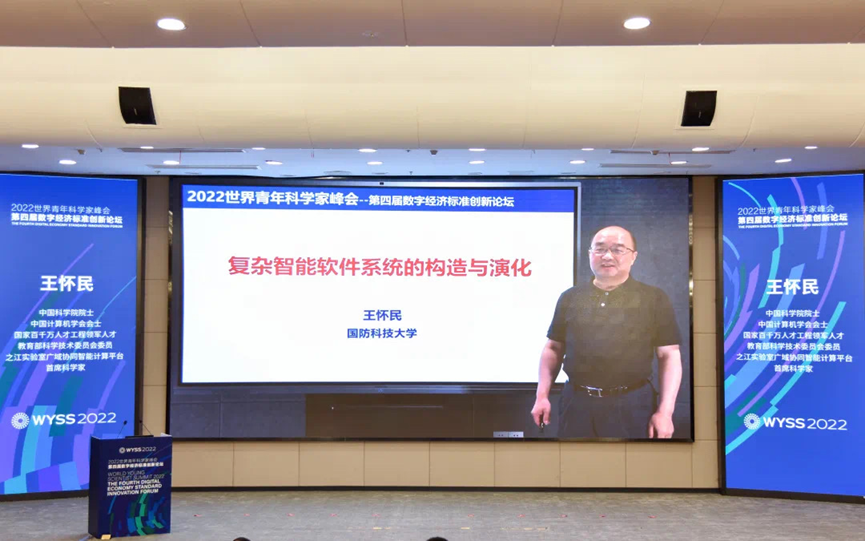
WANG Huaimin made an in-depth interpretation of complex intelligent software systems from the perspectives of concept, characteristics, current situation and challenges and raised two fundamental scientific questions: How to understand and control the complexity and adaptability of complex intelligent software systems? How to design and develop the continuous learning mechanism of human-machine collaboration in complex intelligent software systems? WANG Huaimin believes that the key is to build a complex intelligent software system research and development platform, and introduced four supporting technologies: version evolution model and management tool, intelligent software resource library and application service, intelligent model calculation diagram specification and migration adaptation, intelligent software integrated deployment and operation evolution framework.
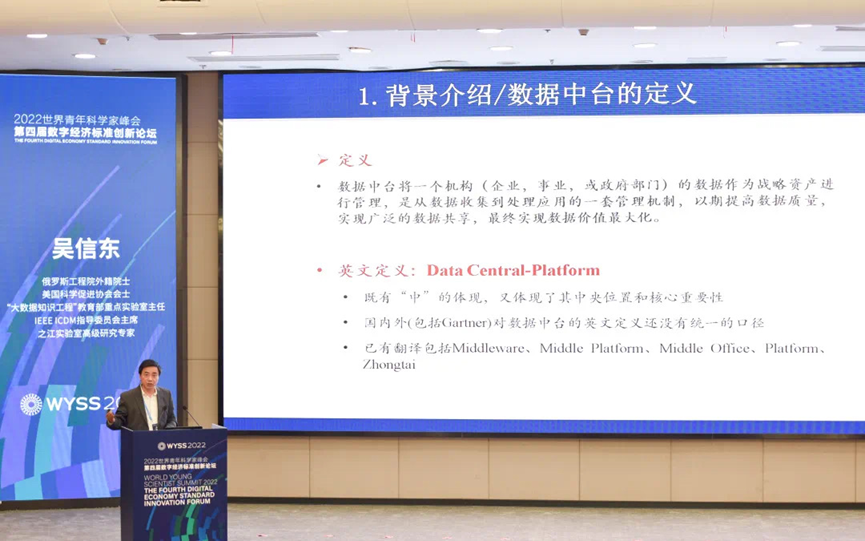
WU Xindong analyzed in detail the definition, core functions, data security principles, security management technology of the data-central platform, and put forward the information security problems existing in the data-central platform based on specific cases. He said that the development of the data-central platform is still in its infancy, facing difficulties and challenges such as immature technology, different framework verification standards and the lack of technical personnel. The new generation of data-central platform technology, on the basis of data fusion, needs to focus more on the integration of industry knowledge. Compared to the traditional two-dimensional table, the knowledge graph technique uses graphs to describe entities and relationships. This complex graph structure is more conducive to exploring the correlation between data and acquiring knowledge.
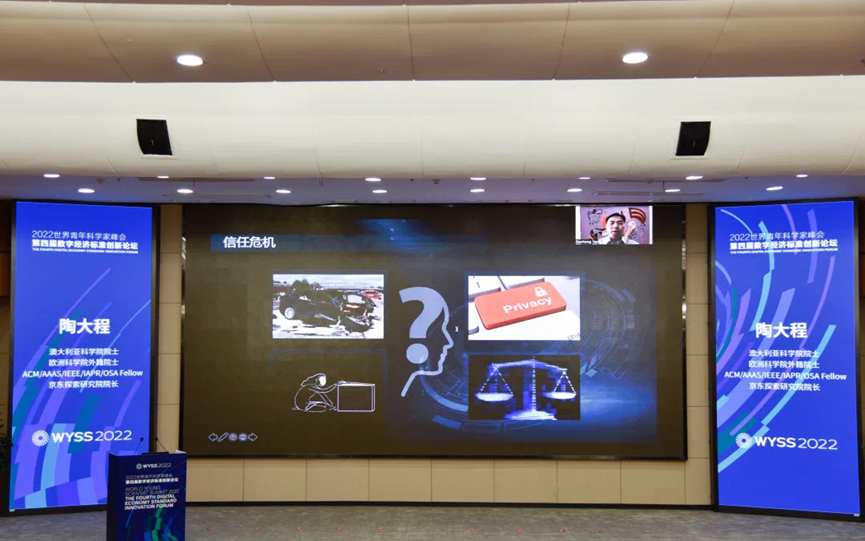
TAO Dacheng introduced frontier exploration and related practices of trustworthy artificial intelligence. He said that while artificial intelligence brings great opportunities, it also contains great risks and challenges, especially the privacy of data, which is one of the issues that artificial intelligence practitioners need to focus on. He believes that the further development of trustworthy artificial intelligence standards aims to develop core standards based on quantitative indicators, which requires appropriate methods for quantitatively analyzing and quantifying artificial intelligence algorithms and models, the stability and interpretability of systems, privacy protection capability and fairness.
In the keynote presentation, PAN Aimin, Chief Architect of Intelligent Computing Data Reactor of ZJ Lab, explained the data and knowledge factors in intelligent computing, and introduced the intelligent computing data reactor of ZJ Lab in detail. In addition, SUN Xiangguang, Director of Wenzhou Big Data Development Administration Bureau, DU Ziran, Vice President of the Research Institute of Big Data of Greater Bay Area, Sorin Cohn, CEO of c-IM&E Inc. in Canada made keynote presentations on the data industry and other fields. At the forum, the gold medal team of the International Standards Olympiad, composed of teachers and students from Hangzhou Foreign Languages School, made a presentation titled What Exactly Are We Talking About When We Talk About Standardization.
The White Paper on Standardization of Data Product Transactions was also released at the forum, which was led by ZJ Lab and jointly compiled by Zhejiang University, Zhejiang Big Data Exchange Center, Shenzhen Data Trading Co. Ltd., Guiyang Big Data Exchange, Wenzhou Big Data Development Administration, and PWC. Based on the exploration and practice of data trading institutions in China, the white paper established the trading standard system of data products from the levels of data products, transaction services, transaction protection, supervision and governance. It will play an important role in strengthening the standardization top-level design of the Chinese data product trading market, establishing a uniform rule system of national data factor market, maximizing the data use effect, and promoting the standardization development of data product trading market.
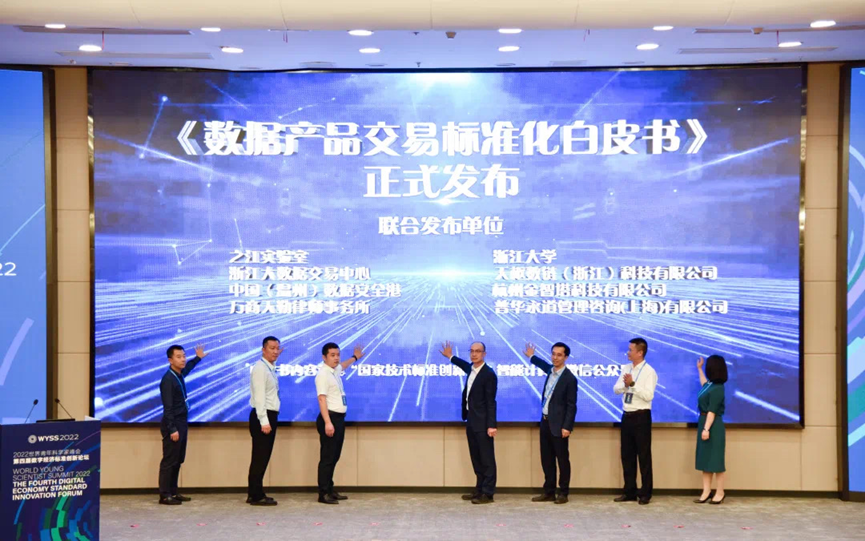
At the forum, YUAN Jixin, Vice President of ZJ Lab and President of the National Technology Standard Innovation Base (Intelligent Computing), LI Jinsong, Director of the Research Center for Healthcare Data Science, PAN Yang, Director of the Research Center for Intelligent Technology Standardization, jointly launched the international standard, Health Informatics - Common Requirements for Multi-Center Medical Data Collaborative Analysis. Prof. Tomohiro Sawa of Teikyo University, Mrs. Zaure Ryspayeva, Chief Expert of Kazakhstan Institute of Standardization and Metrology, and Dr. Olajide Joseph Adebola, President of Nigerian Delegation to ISO/TC 215 sent video messages for the standard launch. This standard is the first ISO international standard led by ZJ Lab, which will work with experts and scholars from China, the United States, Japan, South Korea, Iran, Kazakhstan and Nigeria to jointly promote the formulation of international standards in related fields around the global problem of multi-center medical data sharing and in-depth utilization.

"The effective use of clinical data, especially the collaborative use of cross-institutional and multi-center clinical data, is of great significance for supporting "advanced and sophisticated" medical research and directly serving clinical patients," LI Jinsong said. But the field of medical data has always been challenged by many problems urgent to be solved, such as disorganized clinical data, sensitive patient privacy and complex hospital procedures. In response to major national health demands such as the Outline of the Healthy China 2030 Plan, ZJ Lab has developed the multi-center intelligent medical information platform and focused on solving the problems in the cross-institutional and multi-center clinical collaborative utilization, effectively supporting sophisticated medical research and high-quality clinical patient services. At present, the platform has been accessed to a number of large Grade A tertiary hospitals in three capital cities of the Yangtze River Delta, including Hangzhou, Nanjing and Hefei, covering the complete diagnosis and treatment data of more than 30 million clinical patients. The official launch of the international standard will effectively promote the high-quality development of the health and medical big data industry, and is also a powerful exploration of contributing Chinese wisdom to the collaborative use of global multi-center clinical data.
LI Wuwen, Member of the Standing Committee of Wenzhou Municipal Committee of the CPC and Vice Mayor of Wenzhou Municipal People's Government, GUO Chenguang, Deputy Director-General of the Department of Standards Innovation Management of the State Administration for Market Regulation, WANG Zhongmin, Deputy Director-General level leader of Zhejiang Association for Science and Technology, ZHANG Yiwen, Member of the CPC Committee and Deputy Director-General of Zhejiang Provincial Administration for Market Regulation, and ZHAO Min, President of Wenzhou University and Foreign Member of the Russian Academy of Engineering attended and addressed the forum. Dennis CHEW, Regional Director of IEC Asia-Pacific Regional Centre sent a congratulatory message to the forum.
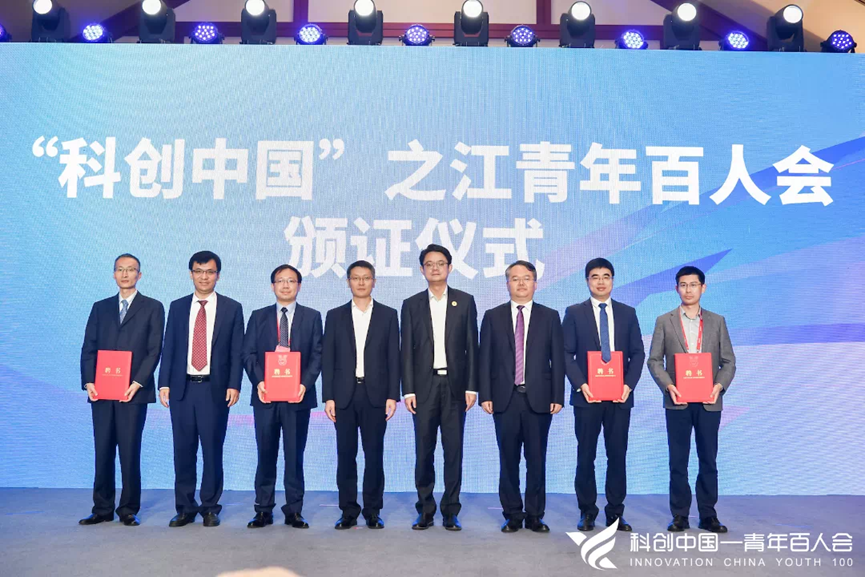
On November 13, ZJ Lab Youth Committee of 100 was officially established at the "Science and Innovation China" Youth Committee of 100 Forum, with LIU Songguo, Chairman of ZJ Lab Technology Holding Co., Ltd. as a member of the Presidency, and LIU Zhe, Deputy Director of the Research Institute of Basic Theories, and WANG Di, Research Expert of the Research Center for Sensing Materials and Devices as members.











